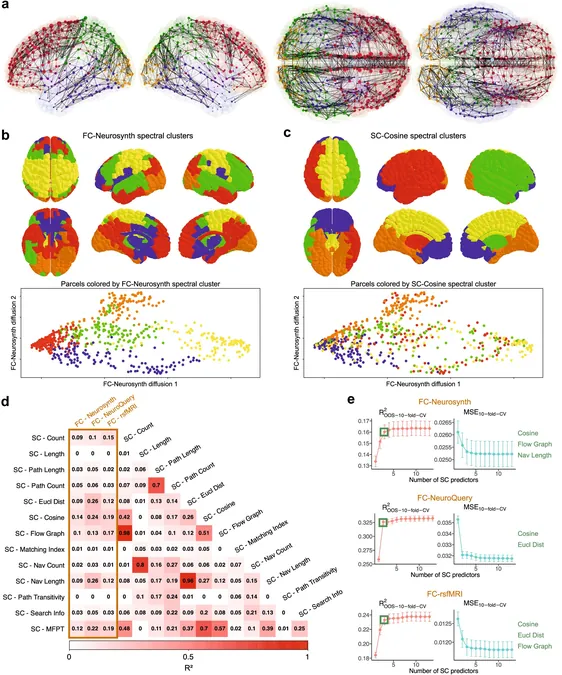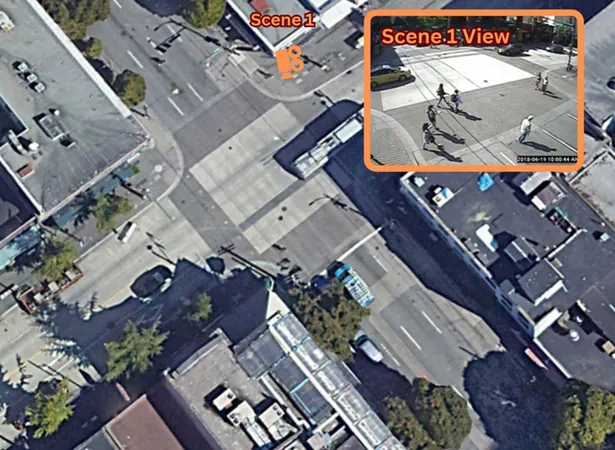
Surprising Findings on Neuronal Wiring Reveal New Insights into Brain Functionality
2024-10-09
Author: Mei
Groundbreaking Study from Yale University
A groundbreaking study from Yale University has shed light on the complex relationship between neuronal wiring and brain function, revealing that this connection varies significantly across different regions of the brain. Researchers are now asking: Do structural connections consistently dictate how our brain performs various functions?
Research Methodology
The team of Yale scientists, whose findings were published in the highly regarded journal Nature Communications, undertook an ambitious analysis utilizing a wealth of structural and functional brain data. By examining over 300 brain functions, they investigated how well the activation of various brain regions corresponds to the physical neuronal connections that link them.
Key Findings
According to lead author Evan Collins, currently a graduate student at MIT but originally part of the Yale Neuroanalytics research group led by Dennis Spencer and Hitten Zaveri, the results indicated that the relationship between brain structure and function exists on a gradient. "We found that this relationship was strongest in primary sensory and motor areas, while it was substantially weaker in the association cortex, especially for complex cognitive tasks," Collins explained.
Implications for Language Processing
This discovery is particularly intriguing when considering how our brains process language. The study observed that the way humans understand words reflects this neural gradient, suggesting that our language capabilities are intricately tied to the underlying organization of our brains.
Evolution of Cognitive Functions
One of the key implications of the study is the potential evolution of human cognitive functions. As the human brain evolved, researchers posited, direct connections may have sufficed for basic functions such as vision and movement. However, as our cognitive abilities became more advanced, the reliance on these direct pathways seemed to diminish. "The brain might have developed more indirect connections to facilitate the emergence of higher-order cognition," noted Zaveri, the co-senior author and associate professor of neurology at the Yale School of Medicine.
Future Directions in Neuroscience
This transformative research not only enhances our understanding of how different brain regions work together but also opens the door to new inquiries into how we might leverage this knowledge in treating cognitive disorders. As scientists probe deeper into the intricacies of brain functionality, one thing is clear: the road to understanding our most sophisticated cognitive abilities could be paved by exploring the labyrinth of neuronal connections that define our very existence.
Conclusion
Stay tuned as we continue to unravel the mysteries of the mind, because the implications for neuroscience, psychology, and even artificial intelligence could be monumental!




 Brasil (PT)
Brasil (PT)
 Canada (EN)
Canada (EN)
 Chile (ES)
Chile (ES)
 España (ES)
España (ES)
 France (FR)
France (FR)
 Hong Kong (EN)
Hong Kong (EN)
 Italia (IT)
Italia (IT)
 日本 (JA)
日本 (JA)
 Magyarország (HU)
Magyarország (HU)
 Norge (NO)
Norge (NO)
 Polska (PL)
Polska (PL)
 Schweiz (DE)
Schweiz (DE)
 Singapore (EN)
Singapore (EN)
 Sverige (SV)
Sverige (SV)
 Suomi (FI)
Suomi (FI)
 Türkiye (TR)
Türkiye (TR)